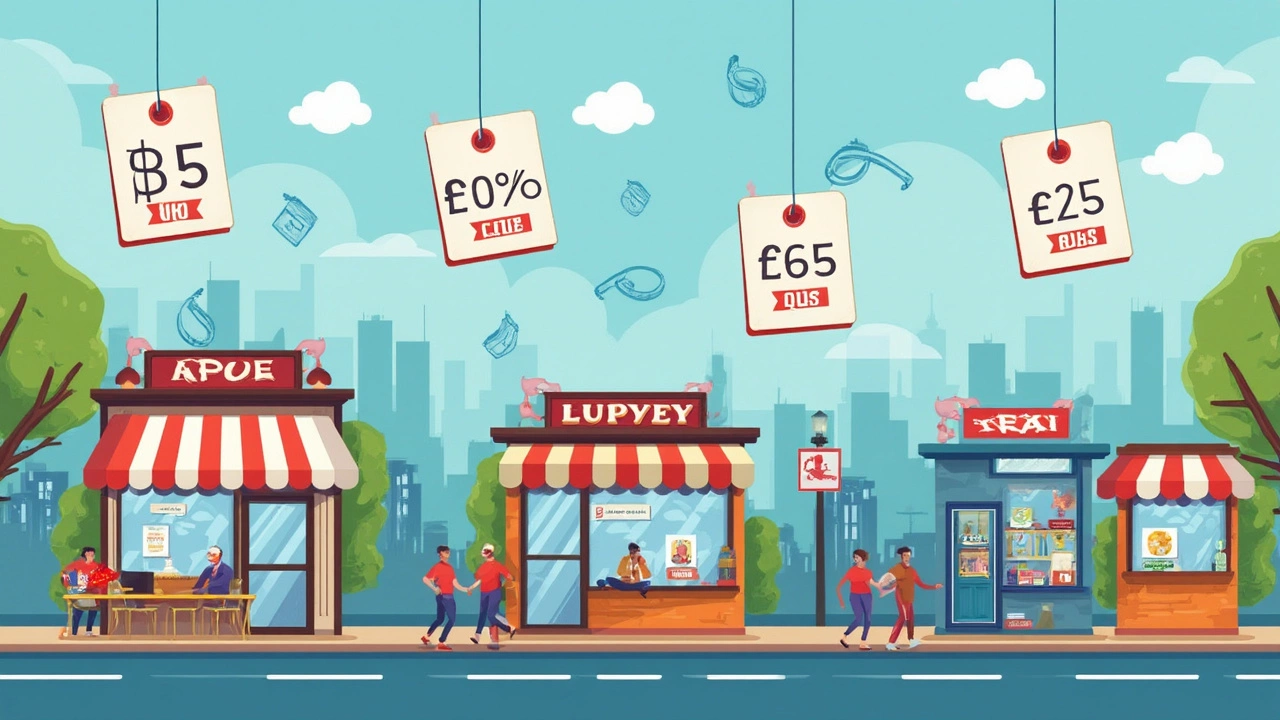Picture this: You've poured your heart (and every sleepless night) into getting your business off the ground. The last thing you want is some unexpected crisis to turn your hard work into a lost cause. Here’s the harsh truth that still shocks: About 75% of small businesses are underinsured, or worse, not insured at all—just one serious lawsuit or disaster away from losing everything. But how much does business insurance really cost in 2025? Spoiler: it’s less than you might think, especially compared to what you could lose.
What Is Business Insurance and Why Do You Need It?
Business insurance is a safety net, and if you’re running a company in 2025, going without it is like driving a car blindfolded. The journey may be fine for a while—until it isn’t. Business insurance covers costs related to property damage, lawsuits, cyberattacks, injured employees, and everything else that can blindside a business owner. Even if you never file a claim, having insurance signals reliability to clients, landlords, and partners. In many states and industries, some coverage—like workers’ comp or liability—isn’t even optional.
It’s not some static, one-size-fits-all product either. There are several types: general liability, professional liability, commercial property, workers’ compensation, cyber, business interruption, and more. Each covers different risks. If a customer slips in your store or your company laptop gets hacked, there’s a policy for that. Unexpected events are the real norm in business. A Gallup poll last year found over half of small businesses faced at least one major disruptive event—think lawsuits, natural disasters, or tech meltdowns. Without insurance, the average major lawsuit costs U.S. businesses over $100,000. For most, that’s a game-over number. Every business—whether a tiny online shop or a buzzing restaurant—faces unique risks. That’s why insurance packages can be as personalized as your morning coffee order.
How Much Is Business Insurance in 2025?
Nobody likes a vague answer when money is on the line. So, here’s the nitty-gritty: Small business owners in 2025 pay an average of $750 to $2,500 per year for a basic general liability policy. Commercial property coverage bumps that number up—average annual premiums land between $1,000 and $3,000. If you add workers’ compensation or bundle with others, totals can range from $2,000 up to $7,500 annually for modest-sized businesses. But it can be way lower for solo ventures, or much higher for those dealing with heavy machinery, bigger staff, or sensitive data. Some startups in low-risk industries are getting coverage for as little as $300 - $600 a year, especially for online-only operations with no staff or inventory.
| Type of Insurance | Average Annual Cost (2025) |
|---|---|
| General Liability | $750 - $2,500 |
| Commercial Property | $1,000 - $3,000 |
| Business Owner's Policy (Bundle) | $1,200 - $3,500 |
| Workers’ Comp (per employee) | $250 - $1,500 |
| Cyber Liability | $700 - $1,700 |
| Professional Liability (E&O) | $600 - $2,000 |
Insurers look at way more than just headcount. Your business’s industry, your location, annual revenue, number of employees, claims history, and even how you store your data all impact your premium. That cheerful coffee shop on Main Street pays a much different rate than a robotics startup in San Francisco or a freelance web designer working from their kitchen. If your business leases space, expect your landlord to require specific coverage minimums. And if you have employees, workers’ comp laws almost always kick in by your second or third hire, sometimes even your first. As your business changes, so do your insurance needs and costs.
What Factors Affect the Price of Business Insurance?
Wondering why your friend pays three times less for their policy? It’s all about risk. Insurance companies run the numbers on your business based on a checklist with a lot of fine print:
- Industry risk: Construction and manufacturing tend to pay higher-than-average premiums, while consultants, e-commerce shops, and photographers can get away with less expensive coverage.
- Location: Are you in a flood zone? Hurricane alley? A downtown high-rise? Urban and disaster-prone areas pay more. Rural or low-crime areas might see better rates.
- Years in business: New ventures pay more at first. A business that shows years of smooth sailing with few incidents earns trust, and often discounts.
- Annual revenue and payroll: Higher numbers typically mean higher premiums, though this isn’t always a bad thing—it often reflects increased assets needing protection.
- Number of employees: The more people you hire, the more your workers’ comp and liability premiums increase. Solo ventures and microbusinesses can score very affordable deals.
- Claims history: Past insurance claims are red flags. Too many, and your rates go up—or companies might refuse outright to cover you.
- Coverage amounts and deductibles: Higher coverage means higher premiums, but raising your deductible can lower your monthly cost (just remember you’ll pay more upfront if trouble hits).
- Type and value of business property: Expensive equipment or lots of inventory calls for higher property coverage, and that means a bigger bill.
Some industries require specific add-ons. For example, a restaurant might need liquor liability. Tech consultants sometimes need cyber insurance by contract. And if you do business with clients overseas, coverage will get pricier and more complicated. The more transparent you are with your insurer about exactly what you do, the fewer surprises you’ll get at claim time.

How to Save Money on Business Insurance
Feeling like all these costs are adding up fast? Totally normal. But there are real, practical ways to keep more cash in your pocket and still feel secure.
- Bundle policies. Insurers reward you for complexity—the more of your coverage you get from one provider, the bigger the discount. The most common cost-cutter is a Business Owner’s Policy (BOP), which rolls general liability and commercial property into one neat (and cheaper) package.
- Shop the market annually. Rates and competition change year to year. Always get fresh quotes near your renewal date. Use online brokers or try regional carriers—they sometimes offer better rates than the big players.
- Reduce risks actively. Burglar alarms, fire systems, staff training, even using secure business software or installing security cameras can score you safety discounts.
- Increase your deductible. If you’re comfortable paying more if disaster hits, raising your deductible can slice your annual premium. It’s a balancing act—don’t overdo it.
- Go paperless and automate payments. Many insurers in 2025 offer small discounts for opting into paperless billing and automatic monthly drafts.
- Ask for professional association discounts. Are you part of a chamber of commerce or trade group? Tons of industry associations have deals with insurance providers you can tap into.
- Assess your needs regularly. Don’t over-insure. The right coverage totals protect what you have—no more, no less. A yearly review helps keep your policies lean and tailored.
If you do make a claim, consider how it will affect your rates next year. Insurers reward “low drama” customers (those who rarely claim) with loyalty discounts and reduced premiums over time. But if you’re scared of a bad year, it’s way cheaper to pay for insurance every time than to shell out six figures to rebuild after a fire or lawsuit. As with anything in business, a little planning ahead goes a long way.
Getting the Right Policy: Tips for Business Owners
Ready to get a policy in place? Start smart. Don’t buy insurance like you’re on a game show. Make a list of what you truly need to protect: people, property, information, reputation, day-to-day operations. Every industry has its quirks. If you’re unsure, connecting with an independent insurance agent can help—they shop multiple carriers, not just one, which means better odds for good rates and honest advice. If you want to try a digital approach, insurtech companies let you compare dozens of policies fast. They usually ask a few key questions and tailor options based on your size and field.
Watch for exclusions. Some policies sound broad but skip over common risks—like floods, earthquakes, or cyberattacks. Always ask, “What does this policy NOT cover?” before signing. Get coverage for contract requirements, too. If you’re working with corporations, government, or certain landlords, you might need proof of specific types of insurance or minimums before you get a contract or open your doors. Don’t leave this until the last minute—processing times vary from an hour online to a week by phone (with all those back-and-forth emails). If your company grows—whether it’s more staff, more revenue, new locations—update your coverage. This keeps you out of trouble and means you’re not paying for protection you no longer need.
- Always keep digital and paper copies of your insurance certificates. You’ll need them unexpectedly at least once a year.
- Consider umbrella coverage if you want peace of mind over high lawsuit limits. For a few hundred dollars extra, you can boost protections well above standard policies.
- Don’t forget business interruption insurance. Three in ten small businesses faced temporary closure in 2023 due to fire, weather events, or supply chain disasters. Income coverage can mean the difference between making payroll or shutting doors while you rebuild.
And here’s a lesser-known trick: Some insurers are now offering short-term or on-demand policies. If you’re planning a one-off event, taking on a big project, or suddenly hiring a team for a festival, you can now buy hourly, daily, or month-long insurance. Perfect for pop-ups, side gigs, or fluctuating needs.
FAQs: Business Insurance in 2025
Still left with that nagging question? Let’s clear up a few common ones.
- Do I really need insurance for a home-based or freelance business? Absolutely. If a client slips on your porch or you mess up a big project, you’re still liable. Homeowners’ insurance rarely covers business stuff—always ask to be sure.
- How much is business insurance for a one-person business? Often just $30–$60 a month for general liability, especially if you work solo online. High-risk fields (like construction) can reach $100–$200 monthly, but tech and consulting are much cheaper.
- Can I get insured instantly online? Now, yes. Most insurers can quote and bind simple policies in minutes—perfect for a gig worker or solo entrepreneur. Bigger or riskier businesses still take more paperwork.
- Does a business loan or landlord require insurance? Almost always. Before banks lend or landlords hand over the keys, they require minimum commercial policy limits—usually at least $1 million in liability.
- Why did my premium jump so much? Usually it’s after a claim, but sometimes it’s because your revenue, payroll, or risk level went up. Ask for a detailed breakdown if you think something looks wrong—mistakes happen.
Still weighing the cost? Think of it this way: Business insurance is like your business's seatbelt. You’ll hate spending money on it—until you need it, and then it’s the best investment you ever made. Think how much time and energy you put into launching your idea. Having your back covered lets you get back to what matters… actually running your business.




